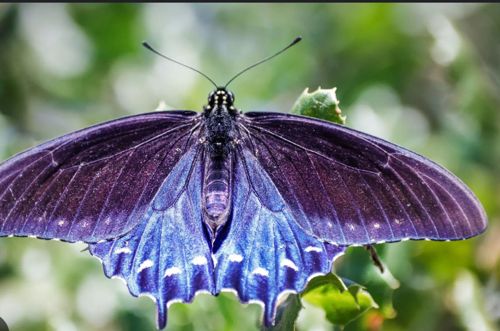Red-spotted Purple or White Admiral
Scientific Name: Limenitis arthemis
Order & Family: Lepidoptera, Nymphalidae
Size: Wingspan: 7 to 10 cm (2.8 to 3.9 inches)

Natural Habitat
Found in deciduous and mixed woodlands, forest edges, clearings, parks, and suburban gardens across North America.
Diet & Feeding
Adults primarily feed on nectar from flowers, but also consume tree sap, rotting fruit, and carrion. Caterpillars feed on the leaves of host plants such as cherry, birch, poplar, and willow.
Behavior Patterns
Adults are active during the day, commonly found nectaring on various flowers. Males are known to 'puddle' on damp ground to extract moisture and minerals. Females lay eggs individually on the host plants, and the caterpillars feed on the leaves. The pupae are often camouflaged and attach to stems via a silken pad at the rear and a silken girdle around the middle.
Risks & Benefits
No direct risks to humans. As pollinators, they contribute to the reproduction of various plants, playing a beneficial role in the ecosystem. Their caterpillars are herbivores and can occasionally cause minor defoliation, but not typically to an extent that poses a significant risk to healthy host trees.
Identified on: 8/16/2025